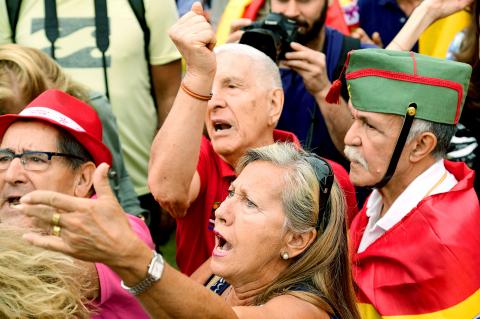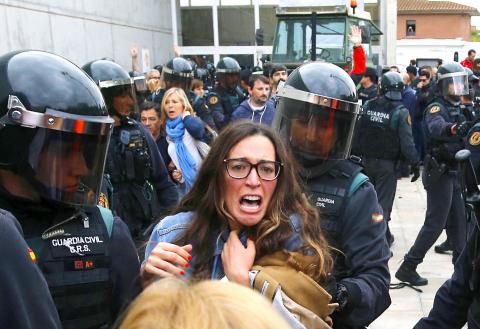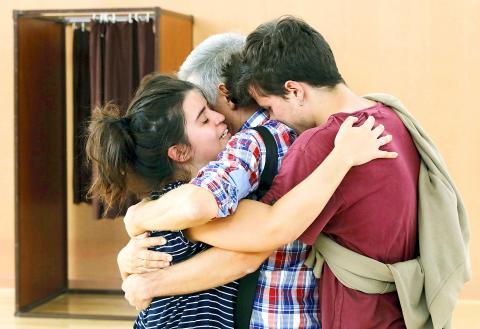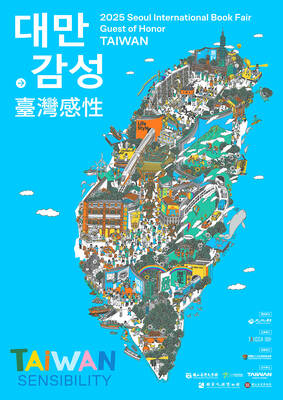Although Spain was united in the 16th century, there was little assimilation or homogenization of the nation, and it remained a collection of diverse regions each with their own defined historical, political, linguistic and cultural traditions. Modern Spain remains a highly decentralized state, composed of 17 autonomous communities and two autonomous cities, each with their own devolved powers.
Article 2 of the Spanish constitution, written in 1978, mentions “historical nationalities,” which are not explicitly identified but were widely understood to refer to the autonomous communities of Galicia in the far north-west, the Basque Country in the middle of the north coast and Catalonia in the far north-east. The term historical nationality implies a recognition of a region’s strong sense of historical and cultural identity.
Many in the Basque region have been calling for independence, as have those from Catalonia and Andalusia in the south. On Sunday, the Catalonian government held a plebiscite with the question, “Do you want Catalonia to become an independent state in the form of a republic?”, despite a constitutional court ruling against the legality of the referendum.

Photo: AFP
圖:法新社
According to Catalan officials, there was a 42.3 percent turnout for the vote, in spite of police attempts to stop the process, with almost 90 percent of the votes supporting independence. Article 155 of the constitution allows the central government to suspend Catalan autonomy and intervene in the autonomous region’s running.
The Catalan government is understood to be discussing its response to Thursday’s constitutional court ruling suspending Monday’s regional parliament session, in which the referendum results were due to be discussed. The suspension was ordered to prevent the Catalan government from making a unilateral declaration of independence.
The EU’s budget commissioner Gunther Oettinger, commenting on the possibility of an independence declaration, said “The situation is very, very disturbing. A civil war is planned in the middle of Europe.”

Photo: AFP
圖:法新社
(Paul Cooper, Taipei Times)
雖然西班牙在十六世紀統一成一個國家,但其內部幾乎沒有同化,仍像是一個不同地區的集合體,各地區擁有自己定義的歷史、政治、語言和文化傳統。現代西班牙仍然是一個高度分權的國家,由十七個自治區和兩個自治城市組成,各自擁有中央賦予的權力。
一九七八年制訂的西班牙憲法第二條提到了「歷史國籍」,雖無明確指出,但一般認為是指西班牙西北部的加利西亞自治區、北部中央濱海的巴斯克地區,以及東北角的加泰隆尼亞。歷史國籍一詞意味著對地方強烈的歷史及文化認同感加以承認。

Photo: EPA
圖:歐新社
巴斯克地區有許多人一直呼籲獨立,加泰隆尼亞和南部的安達盧西亞亦是如此。加泰隆尼亞政府在上週日舉行的公民投票所要決定的問題是:「你是否同意加泰隆尼亞以共和國的形式成為獨立國家?」儘管憲法法院裁定該公投不具合法性。
據加泰隆尼亞官員表示,儘管警方企圖阻止投票之進行,該公投仍有百分之四十二點三的投票率,且幾乎有百分之九十的票數支持獨立。西班牙憲法第一百五十五條允許中央政府中止加泰隆尼亞的自治,且可介入自治區的運作。
西班牙憲法法院週四裁定,中止加泰隆尼亞自治區議會將於下週一舉行的會議,該會議原定將討論公投結果。憲法法院此舉為防止加泰羅尼亞政府片面宣布獨立。據了解,加泰隆尼亞政府將討論如何因應此裁決。

Photo: EPA
圖:歐新社
歐盟預算專員鈞特‧厄廷格在談到加泰隆尼亞可能宣布獨立時說:「情況非常令人不安,有人想在歐洲引發內戰。」
(台北時報編譯林俐凱譯)

The 2025 Seoul International Book Fair was held from June 18 to 22 at the COEX Convention & Exhibition Center in Seoul, South Korea. This year, participants from 17 countries attended, with over 530 publishing houses and related organizations taking part. For the first time, Taiwan participated in the book fair as the Guest of Honor, bringing together more than 85 publishers and presenting a curated selection of 550 titles. A delegation of 23 Taiwanese creatives traveled to Seoul to attend the event, including 13 literary authors, six illustrators, and four comic book artists, among which were a film director, an

The new generation born between 2025 and 2039 has been officially named “Generation Beta,” or simply “Gen Beta.” This generation will be the first to experience a world where artificial intelligence (AI) plays a key role in daily life. Generations are defined by shared cultural, social and historical experiences within a specific time frame. These experiences, often influenced by significant events and technological advancements, shape the values, attitudes and behaviors of each generation. The concept of generations helps us understand how different age groups interact with their environment and contribute to societal changes over time. The previous generational transition from Gen

In late 2024, the suicide of acclaimed Taiwanese author Chiung Yao at 86 sparked a societal debate. She expressed her desire to avoid the difficult aging process and sought to govern her own death rather than leave it to fate. Her statements propelled the issue of “euthanasia” back into the public arena, posing the question of whether Taiwan should legalize euthanasia to grant patients and the elderly the right to die with dignity. Euthanasia, the intentional ending of a life to relieve suffering, is legal for humans in countries like the Netherlands and Belgium but remains prohibited in Taiwan.

Continued from yesterday(延續自昨日) https://www.taipeitimes.com/News/lang As Gen Beta grows, they are expected to witness advanced technologies becoming fully integrated into various fields like education, workplaces, healthcare and entertainment. In addition to technological developments, they will also face big challenges like severe climate change. Influenced by their Gen Y or Gen Z parents, who view climate change as a critical issue for the future and prioritize sustainability, they are likely to focus more on global issues and seek innovative solutions to address them. Moreover, Gen Beta will experience considerable demographic changes, such as lower birth rates and longer lifespans. Consequently, Gen Beta is predicted to